Greek Tragedy By Way of LA
Dallas Theater Center's intimate Oedipus El Rey refreshes familiar myth
For its fourth production of the 2013-2014 season, Dallas Theater Center puts forth a bold, modern statement — and a blast from the past — with Luis Alfaro’s Oedipus El Rey.
Playing at Wyly Theatre through March 2, it updates Sophocles’ classic Greek tragedy, Oedipus the King, to take place in a California prison and among a Chicano gang in Los Angeles. Oedipus (Philippe Bowgen) has essentially been raised in prisons, and when he’s finally released, he survives the only way he knows how: by going back to the gang lifestyle.
In Studio Theatre’s close quarters, every word has extra significance.
Whether you’re a Greek scholar or someone who barely got a passing grade in high school English, the myth of Oedipus has become so ingrained in the culture that most people know the basics of the story. But what Alfaro, director Kevin Moriarty, and the rest of the cast and crew have done is take something familiar and make it fresh again.
The first, and arguably most important, way they did this was to take the production out of the Wyly’s main stage and move it to the much smaller Studio Theatre. There they created a theater-in-the-round with coliseum-style seating that holds 150 people at most. With such a tight, confined space, the play’s seven actors are forced to be in and among the audience at all times, heightening the intimacy.
In such close quarters, words and actions have extra significance. Those seated in the first row are warned they might get stage blood on them, but with the stage area barely 10 feet wide, they’re also susceptible to actors falling in their laps if they take a wrong step.
All of this is to say that the 90-minute play keeps the audience on their toes throughout. The actors alternate between actively participating in scenes to being part of the chorus to manning the lighting, making for almost constant movement. The default placement of actors is on a walkway surrounding the audience, which gives off an almost menacing feel to their actions.
Because there is no room for them, there are no actual sets and minimal props. But the chorus and the actors work in concert with each other so that it’s easy to fill in the blanks where no scenery exists. Because there are no other distractions, the play is hyper-focused on the strengths of both the story and the actors, both of which live up to such scrutiny.
Prisoner recidivism, or that the idea that people go back to their criminal ways when they get out of jail, ties in neatly with the original play’s commentary on destiny. Oedipus is quite clearly given a choice to take another path when he’s released, but part of the reason he returns to his former gang is because he sees no other way to survive. Thus, his fate with his father and mother is fulfilled both by prophecy and free will.
The acting, as we’ve come to expect from Dallas Theater Center productions, is top-notch across the board; Bowgen, Daniel Duque-Estrada (Creon and others) and Sabina Zuniga Varela (Jocasta) give especially noteworthy performances. Each finds a way to bring subtle nuances to the character to make them far from one note.
Oedipus El Rey once again shows that Dallas Theater Center never rests on its laurels, creating something new and exciting out of something that could justifiably be considered the opposite.
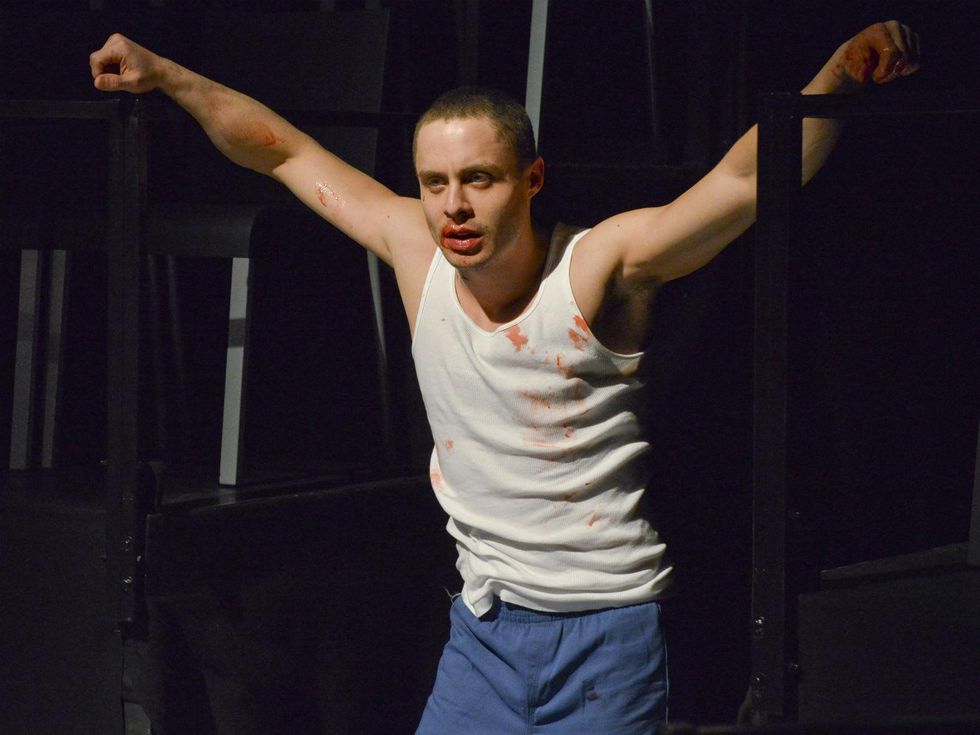
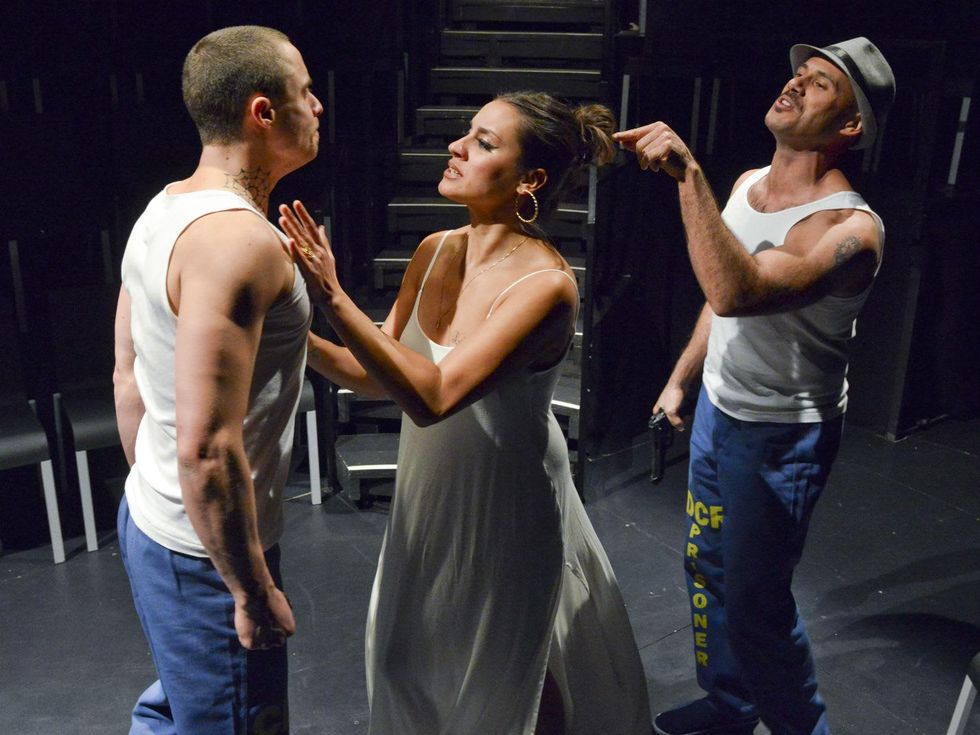
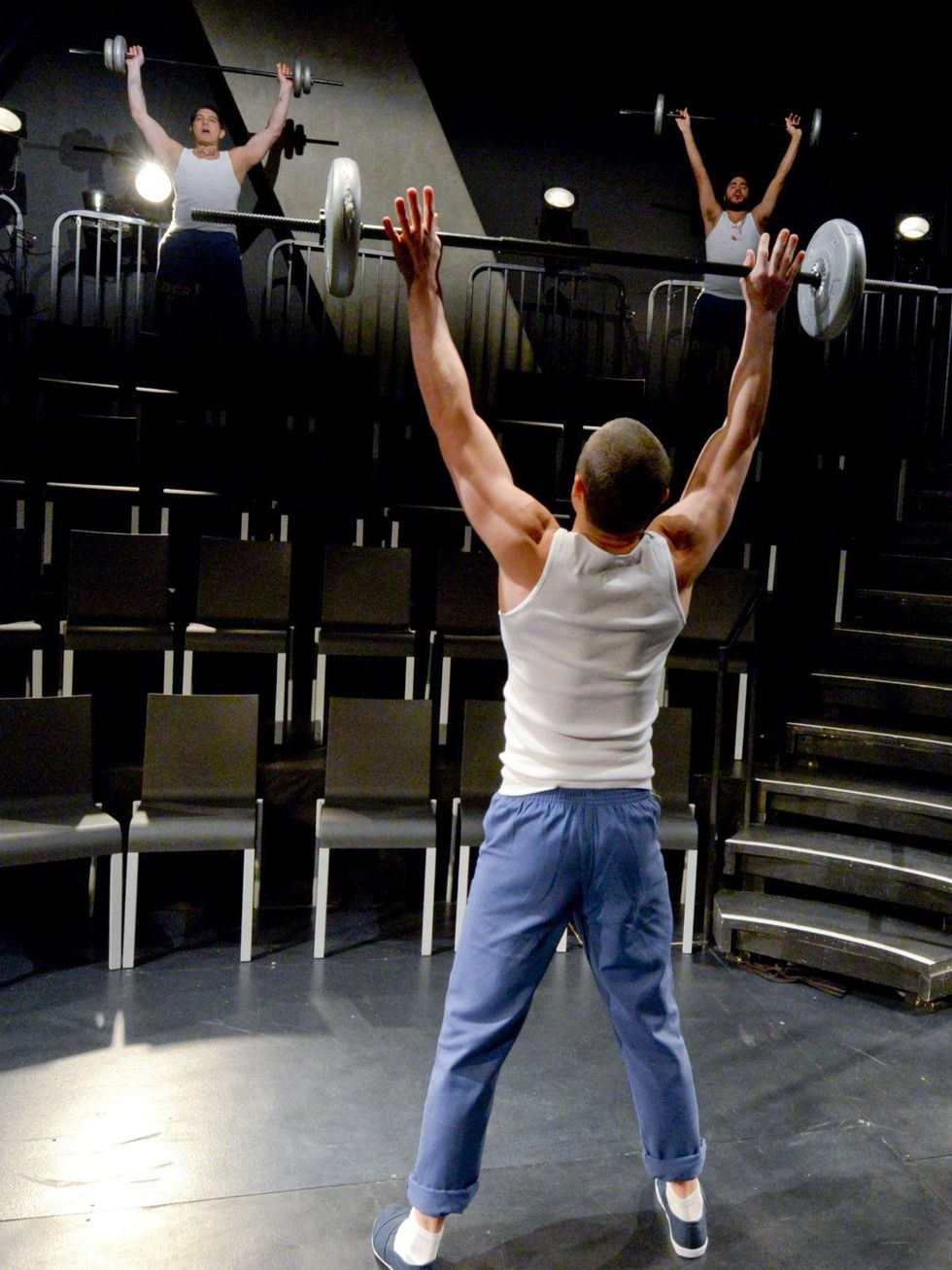
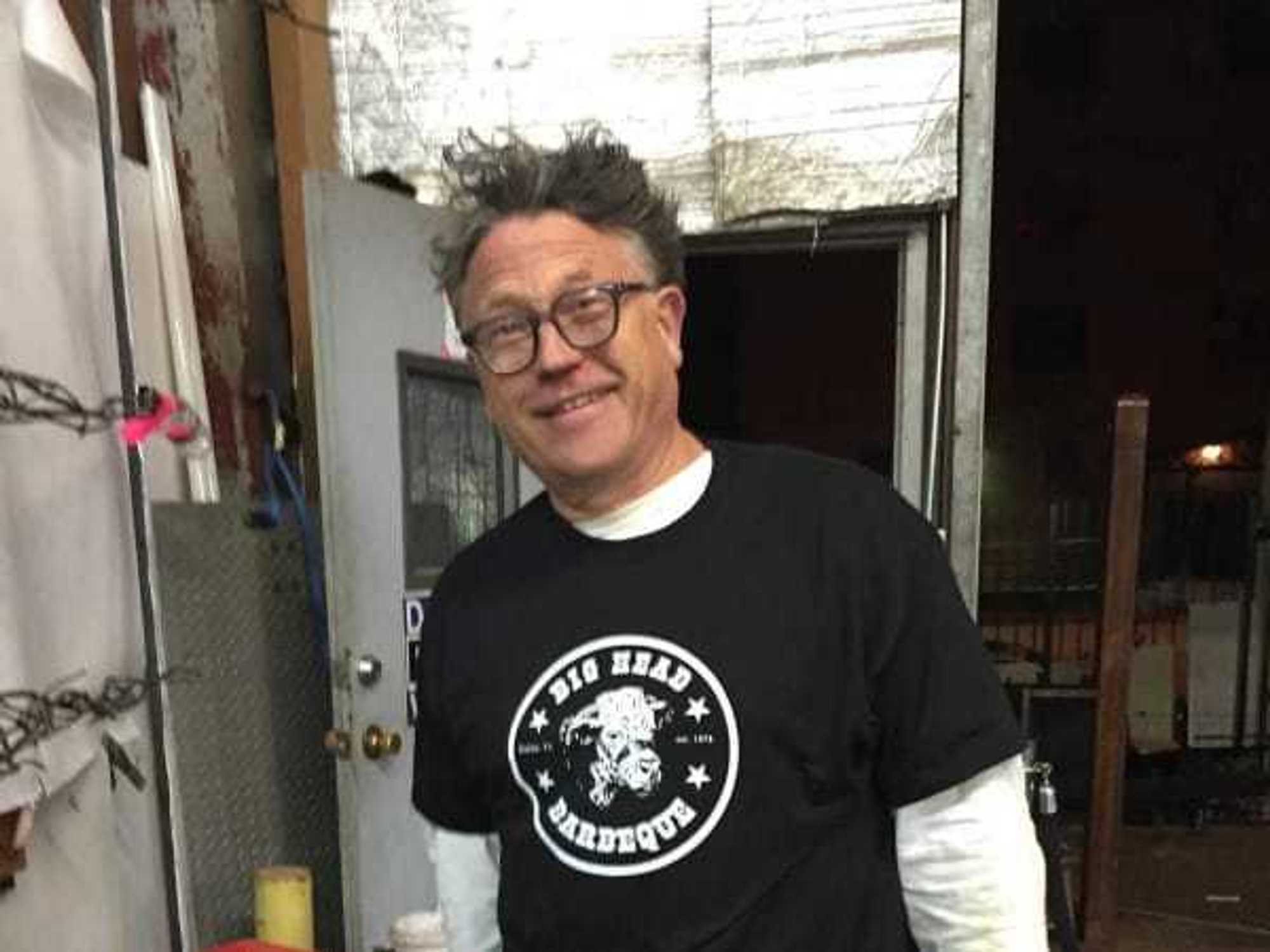
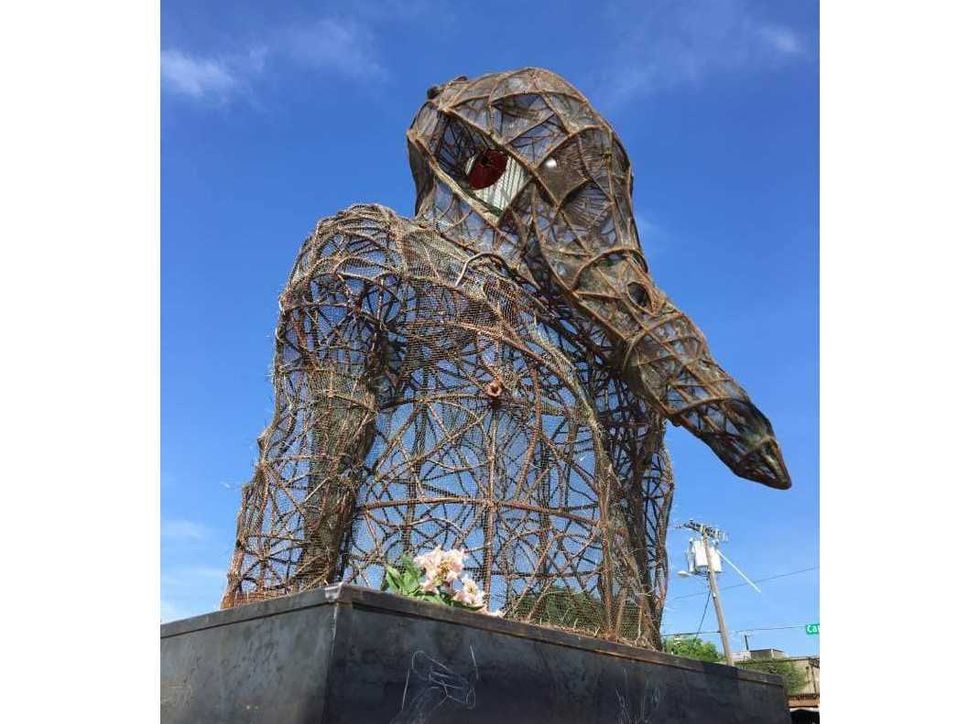 Sculpture by Albert Scherbarth which appeared at the
Sculpture by Albert Scherbarth which appeared at the